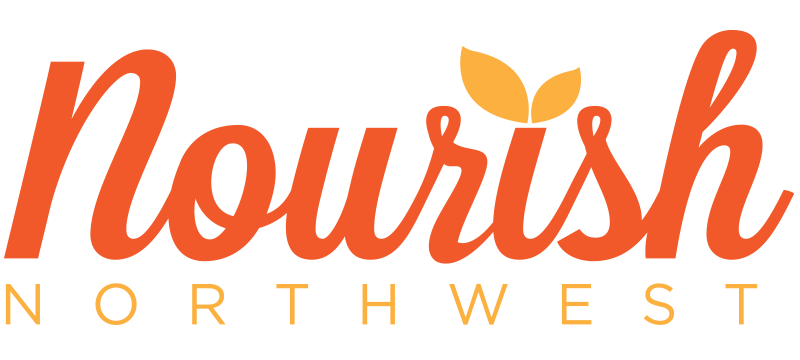Vegan Cooking Class Secrets
Post by Olivia Martino, Registered Dietitian and Co-Ower at Nourish Northwest
Recently we have been doing a lot of vegan cooking in the kitchen of Nourish Northwest. While we never promote one single diet for everyone and both consume all types of foods, we do believe the vegan diet has the potential to be one of the healthiest ways to eat. When followed correctly (ahem… not subsisting on vegan donuts), this lifestyle choice has the potential to protect against diabetes, heart disease and certain types of cancer.
So if we know this, why doesn’t everyone follow a vegan diet? There are many reasons for this, including personal reasons for wanting to include animal proteins, specific health concerns or nutritional needs, food preferences and not knowing how to cook vegan, to name a few. We are certainly not trying to convert everyone to becoming vegan, but we do want to address the latter of these barriers by providing some simple vegan cooking tips.
There are certain properties of animal foods that vegans or people thinking about coming vegan miss or do not want to give up. The first of these is achieving a creamy texture, much like what you would get from using cream or other dairy products. There are two vegan secrets to solving this conundrum: the avocado and the cashew.
We use the avocado a lot to make creamy salad dressings and desserts. One of the best things we have made in our vegan cooking class is an avocado chocolate torte. It has a rich, creamy texture with no trace of avocado flavor. Avocados are also a great source of monounsaturated fat.



The cashew has the power to also produce a creamy texture. It can also turn a dish into a great source of protein. Cashew cream will most likely become a staple in your kitchen if you start doing a lot of vegan cooking. The basic cashew cream recipe involves blending cashews and water together in the food processor for several minutes until you achieve the desired texture. You then have a basic canvas for adding different flavors. Cashew cream always makes an appearance in at least one of our recipes in our vegan cooking classes. By only adding a small amount of water and then nutritional yeast and a variety if savory herbs, we have made a delicious cashew cheese that we served with a roasted beet salad. By increasing the water content, we sometimes make a heavy “cream” that is the added to pureed soups to thicken them up. We also sometimes add sweeteners to make a delicious dessert fruit topping.

Another important property of ingredients, is the potential to bind. Most commonly, the egg is used for this purpose. Luckily, there is a fantastic vegan egg replacer that has worked every time I have used it: the flax egg.
To make a flax egg, you simply dissolve ground flaxseeds with water and let it sit. After about 15 minutes you will have a thick, gooey “egg.” Keep in mind, this is not meant to be eaten as you would an egg, but used as a replacement for an egg in cooking.


The last vegan cooking secret I will be sharing is the method for making something gelatinous. Many vegans will avoid using gelatin because of it’s animal origin. Agar agar is a perfect gelatin substitute for this situation. Agar agar is a sea vegetable, that is the product of the mucilage of several species of seaweeds. It is calorie free, contains 80% of your daily value of Iodine in just 1 Tbsp and is also a good source of calcium and iron.


So now you know the secrets, but you need the recipes! Good news…we’ve got you covered there, too! We offer our Vegan Vitality cooking class almost every month, with the menu constantly changing based on the season. The March 20th and April 24th class will include Beet burgers with creamy avocado dressing, Garlicky Fries with Russian dressing and Key Lime pie. Register today!


